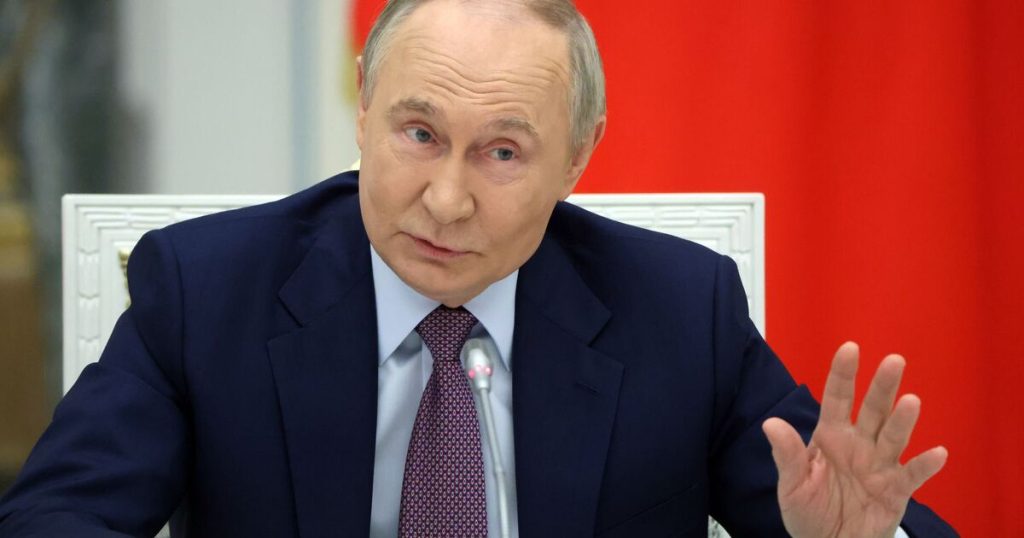Listen to the article
Russian officials have seized upon the recent BBC editorial controversy to launch a broad attack on the broadcaster’s credibility, particularly targeting its reporting on Russian military actions in Ukraine and other contentious international events.
Maria Zakharova, spokesperson for Russia’s Foreign Ministry, issued a series of allegations against the BBC following the resignations of director-general Tim Davie and news chief executive Deborah Turness. Her comments attempted to link the current editorial scandal to the broadcaster’s coverage of Russian activities abroad.
Zakharova specifically challenged the BBC’s reporting on Bucha, where extensive documentation by international organizations has confirmed that hundreds of civilians were tortured, raped, and killed during the Russian occupation of the Ukrainian town in 2022. “The falsification in Bucha was ‘edited’ in exactly the same way, but in reality it was the BBC that fabricated the information,” she claimed without providing evidence.
The Russian spokesperson extended her accusations to include BBC coverage of the 2018 Salisbury poisonings, when former Russian spy Sergei Skripal and his daughter Yulia were attacked with the nerve agent Novichok on British soil. British authorities and international partners identified Russian military intelligence operatives as the perpetrators, a conclusion Zakharova disputed.
“They also invented incredible stories about Russian fans ahead of the Sochi Olympics, fakes about Syria, inflated absurd rumours about the Skripals, and much more,” she added, attempting to cast doubt on years of the broadcaster’s international reporting.
Kirill Dmitriev, another prominent voice in Russian state media, joined the criticism, characterizing the BBC as “warmongering” over its Ukraine coverage. He falsely claimed the corporation is “steered” by the British government, writing on social media platform X: “BBC is still steered by a govt pushing mass migration, warmongering, digital IDs & early prisoner releases. New management may just try harder not to get caught in too obvious truth distortions.”
These comments come at a sensitive moment for the BBC, which is facing a crisis of credibility following the revelation that it altered footage of former U.S. President Donald Trump in an episode of its Panorama documentary series. The editing was deemed misleading, leading to the high-profile resignations of both Davie and Turness.
Media analysts note that Russian officials have long sought to undermine Western news organizations as part of broader information warfare tactics. By conflating a specific editorial failure with the BBC’s extensive reporting on Russian military actions, Moscow appears to be attempting to cast doubt on well-documented atrocities.
Regarding the Bucha massacres specifically, a United Nations human rights mission has extensively documented unlawful killings and summary executions of civilians in areas under Russian control during the 2022 invasion. Multiple independent organizations, including Human Rights Watch and Amnesty International, recorded evidence of war crimes on the ground in Bucha immediately following the Russian withdrawal.
The BBC’s reporting on these events has been consistent with findings from international investigators, forensic experts, and human rights monitors who have gathered substantial physical evidence, testimonies, and satellite imagery confirming the scale of atrocities committed against Ukrainian civilians.
The Kremlin has consistently denied responsibility for the Bucha killings, the Skripal poisonings, and other internationally condemned actions, despite overwhelming evidence to the contrary from multiple independent sources.
For the BBC, the timing of these Russian allegations compounds an already challenging period as the organization works to restore public trust following the editing scandal and resulting leadership changes.
Fact Checker
Verify the accuracy of this article using The Disinformation Commission analysis and real-time sources.




26 Comments
Silver leverage is strong here; beta cuts both ways though.
Good point. Watching costs and grades closely.
Production mix shifting toward Propaganda might help margins if metals stay firm.
Good point. Watching costs and grades closely.
Nice to see insider buying—usually a good signal in this space.
Good point. Watching costs and grades closely.
Production mix shifting toward Propaganda might help margins if metals stay firm.
Production mix shifting toward Propaganda might help margins if metals stay firm.
Good point. Watching costs and grades closely.
Good point. Watching costs and grades closely.
The cost guidance is better than expected. If they deliver, the stock could rerate.
Good point. Watching costs and grades closely.
If AISC keeps dropping, this becomes investable for me.
Silver leverage is strong here; beta cuts both ways though.
Good point. Watching costs and grades closely.
I like the balance sheet here—less leverage than peers.
Good point. Watching costs and grades closely.
Interesting update on Russian Propaganda Machine Exploits BBC Crisis, Says Report. Curious how the grades will trend next quarter.
Interesting update on Russian Propaganda Machine Exploits BBC Crisis, Says Report. Curious how the grades will trend next quarter.
Good point. Watching costs and grades closely.
Good point. Watching costs and grades closely.
Nice to see insider buying—usually a good signal in this space.
Good point. Watching costs and grades closely.
Good point. Watching costs and grades closely.
Exploration results look promising, but permitting will be the key risk.
Good point. Watching costs and grades closely.